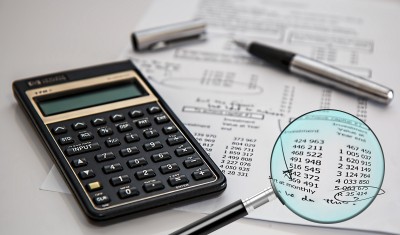
Discount Zone
Two WA consumers have lost a total of $21,243 to scammers who call out of the blue claiming to be from a fake outfit called ‘Discount Zone’ that offers a 30-40 reduction on their bills.
One victim alone lost $20,000 after paying numerous bills they thought had been discounted.
How it works:
- You receive an unsolicited call by someone claiming to be from Discount Zone and offering a 30-40 per cent discount on your bills.
- You are required to send your bill to them via email or WhatsApp
- The scammer claims the bill has been paid and encourages the victim to confirm with the service provider that payment has been received.
- The service provider confirms payment has been received so the victim then pays the discounted amount to Discount Zone via bank transfer.
- The victim is then notified that the payments have been withdrawn by the service provider (for example Water Corp) as the scammers have used stolen credit cards to make the payments and the victim still owes the money to the service provider for the bill.
- Attempts to contact Discount Zone go unanswered
Bulk Deals
WA ScamNet is aware of two victims who lost a total of $37,000 after receiving unsolicited calls from someone claiming to be from a company called ‘Bulk Deals’.
One was a student who transferred $30,000 to pay off his university fees. Not only has his money disappeared, but he still has the outstanding Uni debt to settle.
How the scam works:
- You receive an unsolicited call by someone claiming to be from Bulk Deals and offering a 20-40 per cent discount on your bills.
- The scammer urges you to view their website (bulkdeals.info) as proof they are legitimate, as well as providing you with a legitimate ACN/ABN and links to ASIC.
- You are required to send your bill to them via email or WhatsApp
- The scammer claims the bill has been paid and encourages the victim to confirm with the service provider that payment has been received.
- The service provider confirms payment has been received so the victim then pays the discounted amount to Bulk Deals via bank transfer.
- Bulk Deals then cancels the bill payment and the victim is notified from the service provider that they need to pay the now overdue bill.
- Further attempts to contact Bulk Deals go unanswered.
You compares
Fraudsters are stealing money after promising savings on household bills through a fake business called ‘You Compares’ – not to be confused with authentic comparison website YouCompare.
The steps of the scam:
- You receive unsolicited contact by telephone or email from You Compares offering a 20 per cent saving on your bills. They provide a Hotmail address for contact and ABN details.
- After you send them a scanned copy of a bill, You Compares claim they have made the payment to the service provider on your behalf.
- You contact your service provider, which confirms payment has been received for the bill.
- You pay 80 per cent of the total bill to You Compares via a bank transfer.
- Later, the service provider contacts you to advise that the payment has been reversed and you must pay the now overdue bill again.
- You attempt to contact You Compares, but they are no longer answering your calls or emails.
The real YouCompare business (https://youcompare.com.au) has confirmed it does not offer bill payment services like this. It also does not currently operate in Western Australia.
Consumers are urged to be on the lookout for You Compares, emails received from youcompare@hotmail.com and alliancemarketing@hotmail.com or similar free email accounts, and a You Compares pamphlet that has spelling and grammar errors.
How to protect yourself:
- Remember that anyone calling out of the blue with a special deal may not be who they say they are –if it seems too good to be true, hang-up.
- Check the website or other provided material for spelling or grammatical errors.
- Don’t be pressured - take notes about the deal, but then do some research before signing up or giving out personal information.
- Do some independent research by checking their details (including business name, address and phone numbers) through reliable channels such as searches on ASIC, ABN lookup and by searching these details online.
- Locate the real website of the legitimate business and contact them independently to verify their offer is genuine.
- Be cautious about any business that uses free email services such as Hotmail, Yahoo or Gmail.
- Check online to see if the details match other reported scams or call WA ScamNet (1300 304 054) for information and advice.
- If you have made payments or provided bank details, advise your financial institution immediately and if you used a credit card request a charge back.



